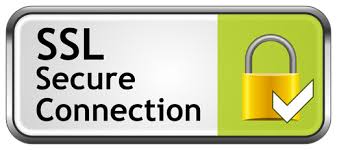Every website owner is constantly making sure they have configured and given their website everything 
An SSL certificate is a way of encrypting websites online to make it safer for web users to browse on. With an SSL certificate on a website (shown as https:// rather than http://), data that is sent to and from the hosting server and the web user is secure. For this reason, you will find that pretty much all websites that require web users to fill in details about themselves, such as bank details for buying goods, email addresses or their postal address, will use an SSL certificate.
This does not straight away mean that if you are not capturing leads from web users that you do not need an SSL certificate. Google have in fact stated that they are putting more emphasis as time progresses with using SSL certificates as a ranking factor for ranking websites on their search engine. The reason Google have done this is because they believe that a world where every website is https encrypted will result in a better and safer user experience for web users online. They call this move to https ‘HTTPS everywhere’.
This was released in 2014 (yes, that was two years ago). But, the point to make with this is that Google are constantly giving https more weight every year with regards to having an impact to the search engine rankings of a website. Therefore, you shall see https become more important in 2017 with regards to SEO.
As well as this, people trust and like websites that present themselves with ‘https://’ rather than ‘http://’ – although it is most likely subliminal, the ‘s’ really does make a difference with regards to how a web user interacts with a website.
The main drawback to adopting an SSL certificate, though, is the cost of purchasing one. For example, on one of my websites, I pay $50/year for an SSL certificate to make my website https. However, have I noticed any real meaningful difference? Well, no. But, I know I will be future proofing my website for any algorithm updates Google may present us in the future.
Therefore, should you purchase one or not? I think it has to depend how mature and old your website is. For example, if you are just starting up a website, I think getting an SSL certificate can wait. However, if your website has been successfully running for quite some time now, at least a year or two, it might be a good idea to give your website a SEO boost and security boost through SSL certification.




